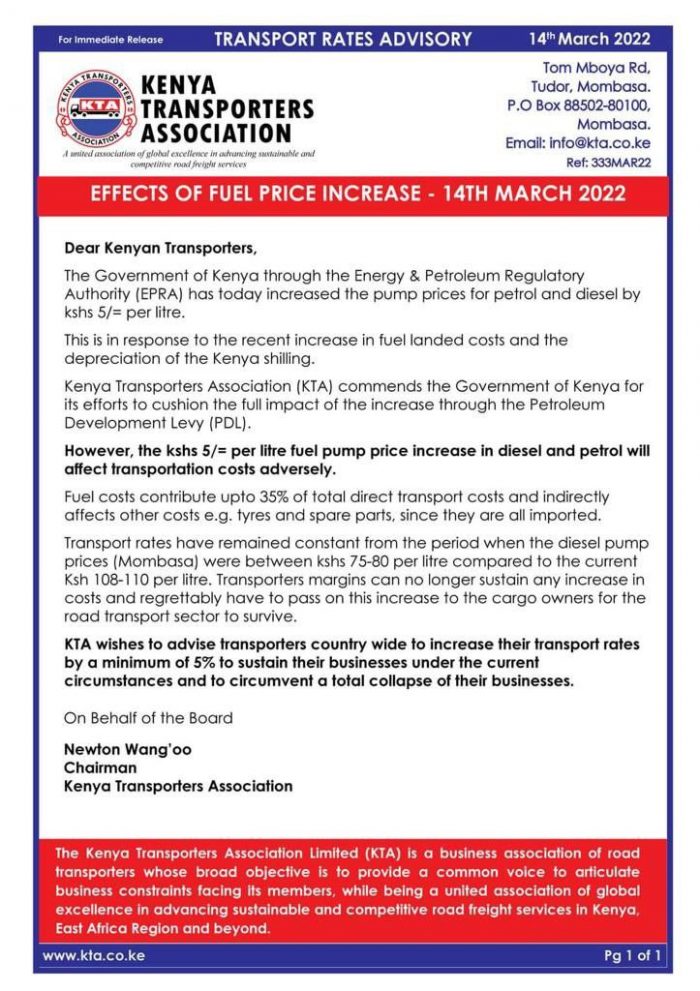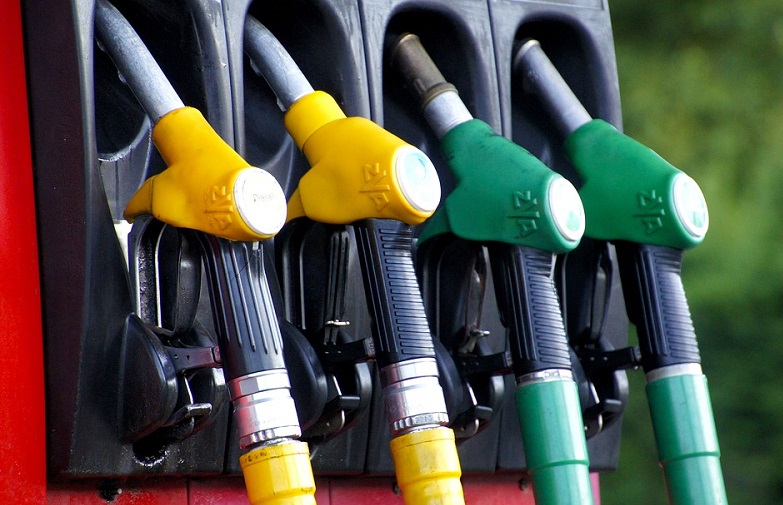The Energy Petroleum and Regulatory Authority (EPRA) announced the new fuel prices expected to be in place for the next one month. In the new prices, the cost of Super Petrol and Diesel went up by five shillings.
What happens next after the increase in fuel prices? What should Kenyans expect in terms of the effects down the value chain?
First, transport costs are going to increase. Already the association of transporters has issued a statement to the effect that they plan to raise their transport costs for goods and services as a result of fuel hike.
Here is the statement from them:

When the transport costs of goods are hiked, the pain is passed onto the consumers in terms of the increase in prices of goods.
Second, those who use public transport vehicles (PSV) are about to pay through the nose. There is no doubt that bus fares have been high since Covid-19 but matatu owners are fond of taking any slightest advantage to hiking fare.
Third, inflation will go up. Fuel prices play a major role in determining the inflation rate in Kenya. When fuel prices go up, the cost of production goes up too due to energy and transport costs. These additional costs are transferred to the consumer through the hiking of prices.
Fourth, the price of common goods will go up. The prices are already at their highest in 15 years. Sugar is at 270 shillings per 2-kilogram packet, cooking oil at 345 shillings per liter, and salt up by 200 percent. Despite the already increased prices of common goods, Kenyans should expect more pain.
EPRA has blamed the increase in fuel prices on the increase in the landed costs of both Super Petrol and Diesel. The rise in fuel prices comes a week after the price of cooking gas was increased by 15 percent.
Read More:

